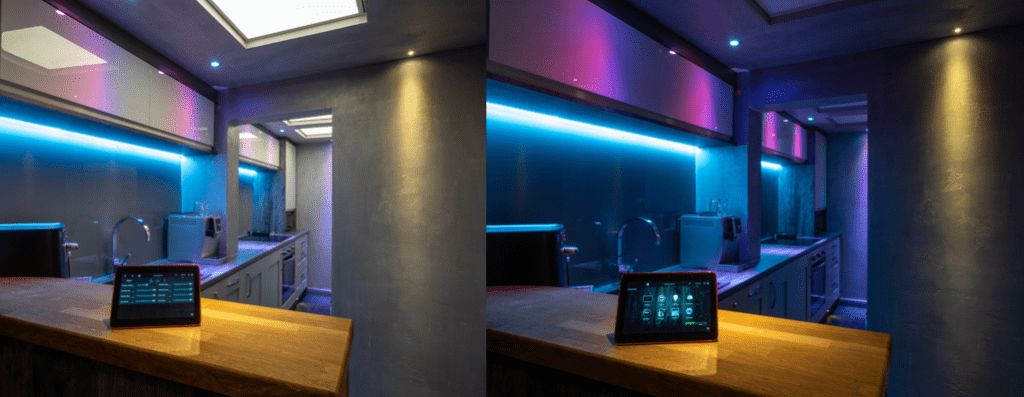In the fast-paced world we live in, maintaining a balanced mood and overall well-being is more important than ever. One often overlooked factor in this equation is lighting. The advent of smart lighting technology has opened up new possibilities for creating environments that not only illuminate our spaces but also enhance our mood and energy levels. This article explores how smart lighting can positively affect your emotional and mental state, offering a powerful tool for improving your quality of life.
Understanding the Connection Between Lighting and Mood
Lighting has a profound effect on our emotions, productivity, and overall sense of well-being. Natural light, for example, is known to regulate our circadian rhythms, which are the internal processes that govern our sleep-wake cycle. Exposure to appropriate lighting at the right times of the day can help boost mood, improve focus, and promote better sleep.
Smart lighting systems take this concept a step further by allowing for precise control over light intensity, color temperature, and timing. This level of customization enables individuals to create lighting environments that are tailored to their specific needs and preferences, enhancing their mood and energy throughout the day.
How Smart Lighting Improves Mood
- Adjustable Color Temperature: One of the key features of smart lighting is the ability to adjust color temperature. Warm light (with a lower color temperature) is often associated with relaxation and comfort, making it ideal for evening use. On the other hand, cool light (with a higher color temperature) mimics daylight and can help increase alertness and concentration. By adjusting the color temperature to suit the time of day or activity, smart lighting can create environments that promote relaxation or productivity, depending on your needs.
- Dynamic Lighting Scenes: Smart lighting systems allow users to create dynamic lighting scenes that can change throughout the day. For example, a morning scene might feature bright, cool lighting to help you wake up and feel energized, while an evening scene could gradually transition to warmer, dimmer lighting to help you unwind. These dynamic changes can help align your lighting environment with your natural circadian rhythms, promoting a more balanced and positive mood.
- Personalization and Control: The ability to personalize your lighting environment is another significant benefit of smart lighting. Whether you prefer a soft glow for reading or vibrant, colorful lighting for social gatherings, smart lighting systems give you the flexibility to create the perfect ambiance for any occasion. This level of control allows you to tailor your surroundings to your emotional and mental state, helping you feel more comfortable and at ease.
- Supporting Mental Health and Well-being: Smart lighting can also play a role in supporting mental health. By providing consistent and appropriate lighting levels, these systems can help mitigate the effects of Seasonal Affective Disorder (SAD) and other mood-related conditions. Exposure to the right kind of light at the right time can boost serotonin levels, reduce feelings of depression, and improve overall well-being.
Smart lighting is more than just a modern convenience; it is a powerful tool for enhancing mood, energy, and overall well-being. By offering customizable lighting options that adapt to your needs, smart lighting systems can create environments that support mental and emotional health. Whether you are looking to boost your productivity during the day or create a calming atmosphere in the evening, smart lighting provides the flexibility and control needed to achieve your desired state of mind. As technology continues to advance, the impact of smart lighting on our mood and well-being will likely become an integral part of how we design and interact with our living and working spaces.


